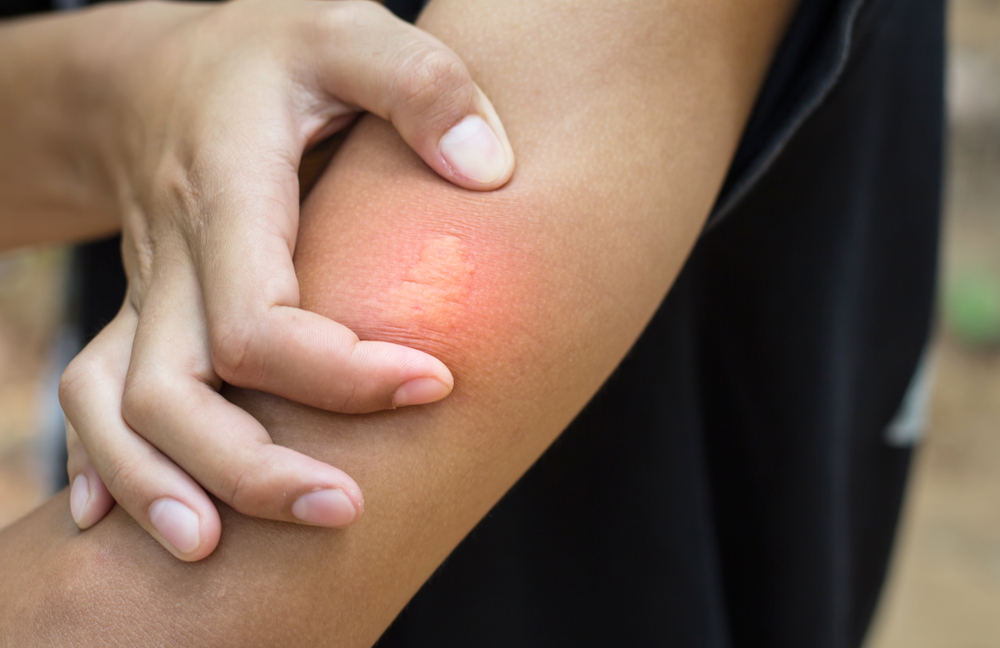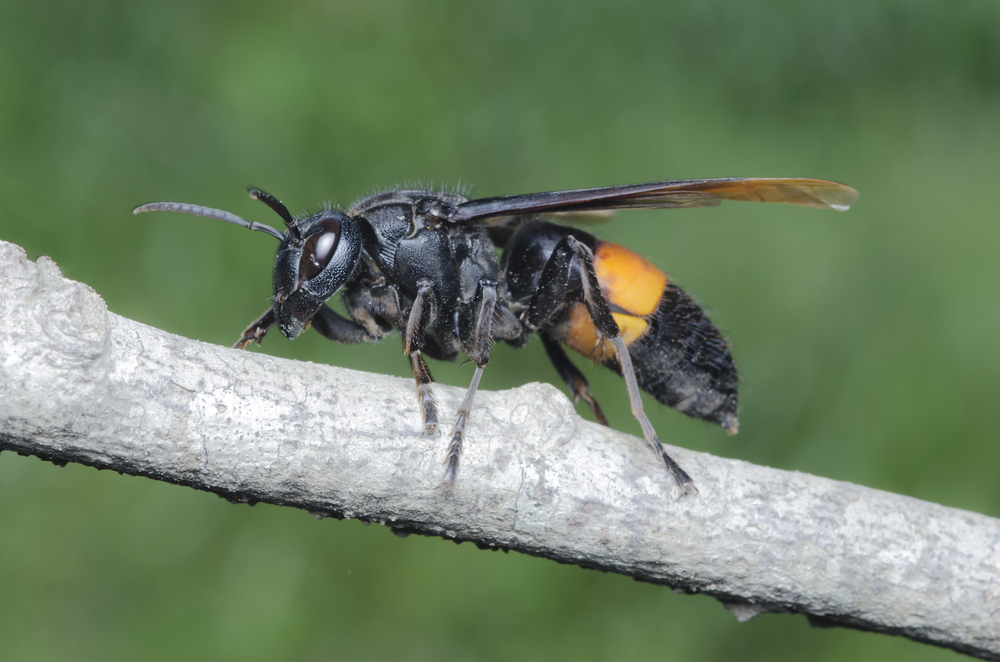In the wasp family, hornets are the largest – their body is around two centimeters long. Their stings are more painful than those of wasps. What helps against hornets?
Hornets are significantly larger than wasps and also have brown-yellow stripes. The usual hornet season starts in May and ends in October.
What is the danger they pose?
The saying “Seven stitches kill a horse, three stitches kill a human” is exaggerated. The sting of hornets is more painful than that of wasps, but the hornet venom is usually not fatal. An exception are humans, who are allergic to insect bites. A swelling is not yet an allergic reaction. A definite diagnosis can be made by a test at an allergologist or dermatologist.
How can I protect myself?
The same rules apply as for wasps: try to keep calm in the vicinity of hornets. Do not make hectic movements. A trick to keep hornets away from the coffee or lunch table: Decorate the table with slices of lemon, peppered with cloves. Cover especially sweet dishes with netting caps and do not drink from dark bottles or cans, but only from containers where you can see the drink. It is best to use thin straws outdoors.
You were stung? Tips and home remedies

Simple home remedies that are readily available are suitable for fast immediate help. Place a sliced onion or damp salt on the puncture site. This helps to relieve the itchy pain and swelling. It is best to cool the wound with ice-cold water, acetic clay or gel sachets. After cooling, you can also treat the wound with ointments or creams that have a disinfectant and anti-allergic effect. It is best to seek advice in a pharmacy. In case of stitches in the oral cavity, call an emergency doctor. Suck ice cubes until they arrive. Allergy sufferers should always carry a set of emergency medication with them in summer.

